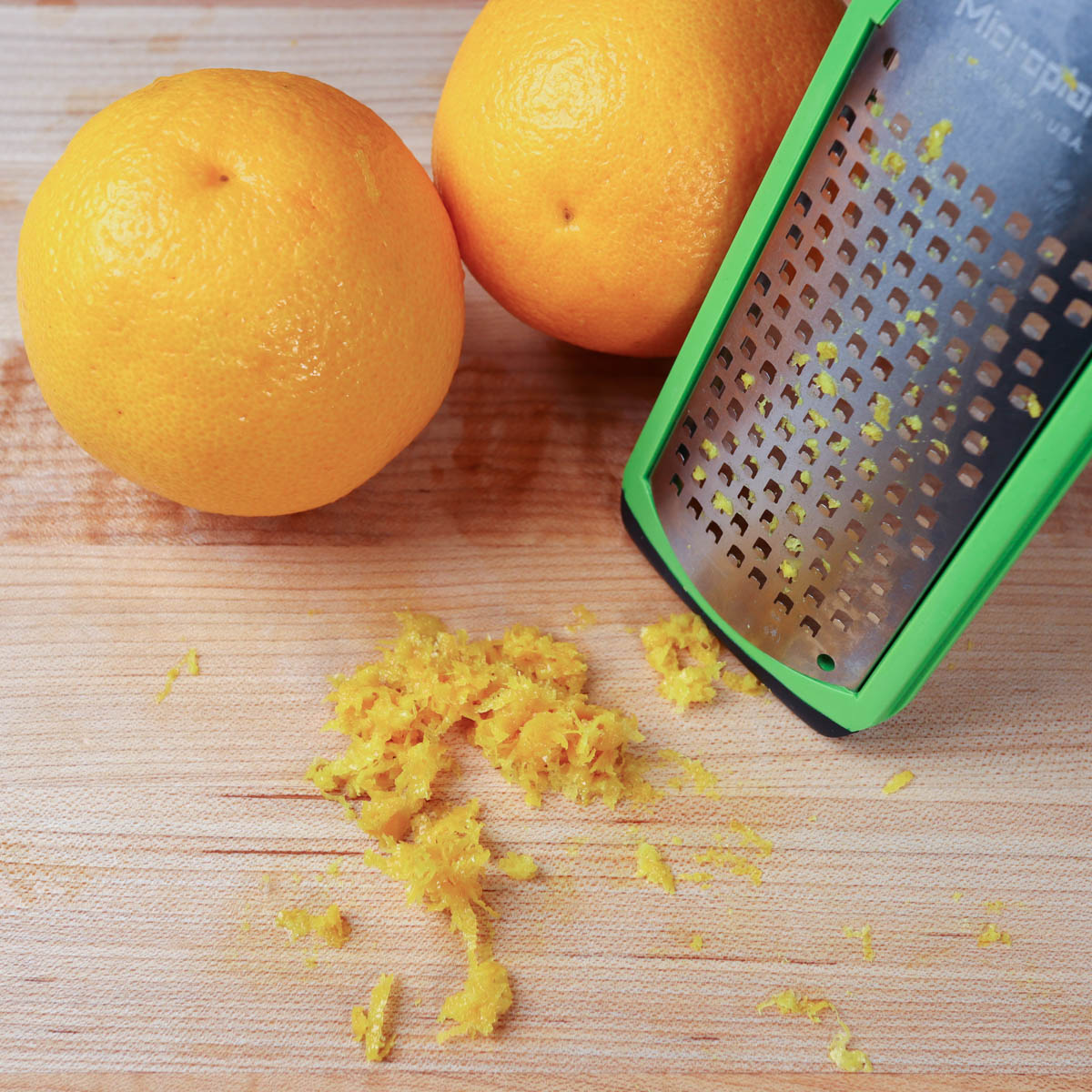Lemon Zest Substitute
Lemon zest is used in so many great recipes to give you that fresh lemon flavor but what if you don’t have any lemons? There are a few different substitutes to use in place of lemon zest!
Lemon zest is a great way to add lemon flavors to many desserts and dishes. It brings out that lemon flavor even more so than lemon juice.
So if you catch yourself in the middle of a recipe and then realize that you do not have the lemon zest that it calls for, you are in luck because there are a few substitutes for lemon zest.

Substitutes for lemon zest
Depending on what you are looking to accomplish with your lemon flavor will determine what you decide to use for your lemon zest substitute.
Lemon zest is used to bring out that fresh lemon flavor. If you are not sure how to make lemon zest I have an instructional post about it that you should check out!
Just because you don’t have a Microplane doesn’t mean you can’t make lemon zest!

Lime Zest
Lime zest is going to give you the same tangy flavor as lemon zest. The consistency and texture will be the same but your recipe will take on more of a lime flavor.
When you substitute lemon zest with lime zest you want to use the same amount.
It is a 1:1 ratio in any recipe. This makes for a great substitute in just about any dessert you might be making such as poppyseed muffins or a lemon drizzle.
Check out my post on how to make lime zest.

Orange Zest
Orange zest is another great substitute for lemon zest. You can use just about any citrus fruit as a lemon zest substitute.
Keep in mind the flavor will change a little but it will still give you that fresh citrus taste you are looking for. You want to use a 1:1 ratio when substituting lemon zest with orange zest.
The citrus zest gives a nice fresh note of the citrus whether you use lemon. lime or orange zest. The flavor will however give you a little more of the fruit flavor that you use.
If you are interested in using orange zest as a lemon zest substitute check out my post to learn how to make orange zest.
Lemon Juice
Using lemon juice for a lemon zest substitute can work but it will give you more of the sour tangy lemon flavor whereas the zest will give you that true lemon flavor.
Certain recipes call for lemon zest because of the lightness that it is trying to achieve or the true lemon flavor and not the sourness.
Chances are that if you are out of lemons for lemon zest then you don’t have fresh lemon juice on hand either. You can use bottled lemon zest but it won’t give that fresh taste you get from a fresh-squeezed one.
When you are adding lemon juice instead of lemon zest you want to use half the amount. For every 1/2 tablespoon of lemon zest, you want to use 1 tablespoon of lemon juice.
Also, have you learned how to cut a lemon?
Lemon Peel
Lemon peels are great to add the true lemon flavor we have talked about just like the zest. Maybe you have lemons on hand but you don’t have a Microplane to zest it. That is ok!
You can carefully peel your lemon with a vegetable peeler and then chop it up as finely as possible. You will get the same great lemon punch as you are using the same part of the lemon as if you zest it.
It might be a smidge weaker them the zest as it’s not scraped as small but you will certainly get a very similar test.
If you like the tangy taste of citrus fruits you will have to check out my grilled chicken taco recipe! The lime juice in it makes it taste so fresh and delicious!
How to store citrus zest
Storing citrus zest properly is quite simple and can be done in a few ways:
- Freezing: This is the most common method. Zest your citrus fruits, spread the zest out on a baking sheet, and freeze it. Once frozen, transfer the zest to a sealed container or a freezer bag. It will stay flavorful for several months.
- Drying: If you don’t have freezer space, drying the zest is another good option. Spread the zest out on a baking sheet and let it dry at room temperature for a few days. Once it’s completely dry, store it in an airtight container in a cool, dark place.
- Refrigerating: If you plan to use the zest within a week, you can store it in the refrigerator. Place the zest in an airtight container or sealed bag to keep it fresh.
Its also important to know how to store your lemons to ensure that they last and are fresh when you need them for your zest.
Frequently asked questions about lemon zest substitutes
Conclusion
While nothing can perfectly mimic the distinct, bright tang of fresh lemon zest, there are many practical substitutes that can come quite close.
Whether you turn to other citrus fruits, like limes or oranges, or utilize pantry staples like lemon extract or juice, there are plenty of ways to incorporate a similar zesty flavor into your dishes.
Just remember, the key is understanding the unique flavor profile of your substitute and adjusting quantities as necessary.
Each of these alternatives can provide a distinctive touch to your culinary creations, ensuring that a missing ingredient doesn’t put a damper on your cooking adventures.

Online Cooking for Beginners Course